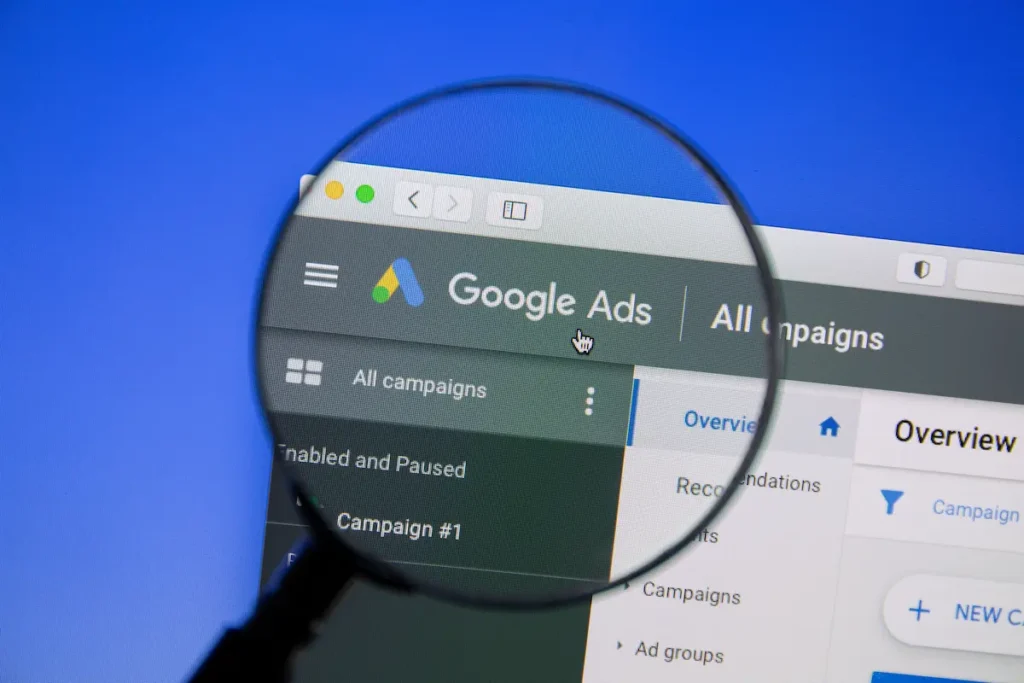I do love the Simpsons! There are so many amazing quotes, too many to remember. One that has stuck with me surrounds the name that Homer invents called Max Power! (well he actually gets the idea when sees it on the hand dryer in a bathroom!). Such a cool name.
One of the more recent developments from Google in its ads arsenal is the AI play called Pmax – or performance max that google claims produce superior returns.
The Dark Side of Performance Max: Why You Should Reconsider Your Google Ads Strategy
In the world of Google Ads, it’s easy to get swept up in the latest trends and technologies. But, as with any powerful tool, there are risks involved. This is very much true of Google’s Performance Max (Pmax).
Even after almost four years, Pmax is still a relatively new addition to the Google Ads arsenal, promising to automate your ad campaigns and deliver maximum results. But, as our research has shown, it’s not all sunshine and rainbows. In fact, it could cast dark storm clouds over your budget, and it’s not raining high-quality leads.
The Trouble with Pmax
We’ve analysed over 30 Google Ads accounts running Pmax and conducted experiments on another 20, and the results are not what you’d expect.
Despite their assurances that Google will handle everything and hand you leads on a golden platter, we found that for B2B businesses and lead generation campaigns, Pmax actually produces a lower return on ad spend compared to traditional Google Ad campaign management.
But what’s behind this underwhelming performance?
Wasted Spend on Low-Converting Networks
We’ve run countless campaigns for my own business as well as other B2B and lead generation businesses. We’ve seen the performance of campaigns prior to Pmax and after. And I can tell you that the Pmax campaigns are significantly worse.
Imagine throwing money into a bottomless pit, never to see a return on your investment. That’s what happens when Pmax runs on all Google networks, including the display network and partners network, which convert at a significantly lower rate than core keyword search.
These networks are great for brand awareness and building recognition, but they’re not designed to drive conversions.
Auto-Bidding Just Raises Revenue for Google
Google Ads is an auction system by design, where the highest bidder wins the coveted spot. But when you opt for auto-bidding, you’re giving Google the green light to play with your budget. And, as we all know, Google’s algorithm is always looking for ways to maximise revenue.
With Pmax, Google creates a bidding war between you and your competitors – automatically raising each of your bids regularly – without any of you noticing until you’ve used up your budget with little to show for it.
And as a side note: with all this auto-bidding, I’ve never seen Google decrease a bid.
Incorrect Conversion Actions
Pmax relies on accurate tracking and conversion actions to optimise your campaigns. But without proper setup, you’re setting yourself up for failure.
Incorrect conversion actions mean Pmax will optimise for the wrong goals, resulting in low-quality leads and wasted spend.
This one’s not entirely on Google, but they won’t tell you about it either. You need to be proactive and set up your campaigns properly. And of all the campaigns we’ve worked on over the past five years, 90% haven’t had the right conversion actions set.
Lack of Lead Differentiation
Many Google Pmax campaigns are set up so they don’t account for the value of different lead types. They prioritise quantity over quality, leaving you with a bunch of low-quality leads.
So, I guess it does what it promises: it will pour results in the form of leads, but they’re not guaranteed to be good ones. Pmax may get you 100 leads, but if only 10 actually qualify to become customers then what’s the point?
Lazy Results
It’s simple, lazy begets lazy. Like most things in life, you get what you put in. So if you take the easy path – set it and forget it – and don’t put the effort in, you’re going to get results that reflect that.
You can hope for the best, but if you’re not regularly analysing your results then you’ll never know if they’re actually working. And again, just remember who Google looks out for first and foremost.
So, Look Out For Your Best Interests: Say Goodbye to Pmax
Let’s face it – Pmax is designed to maximise Google’s revenue, not yours. It’s a tool designed to keep you hooked on their platform, even if it means sacrificing your success and budget. By using Pmax, you’re putting your hard-earned money in someone else’s pocket, rather than investing in your own business.
The dark clouds of Pmax are real, and they’re hiding in plain sight. Be aware of these pitfalls and take control of your Google Ads campaigns today.
Unlike Pmax, managing your Google Ads campaigns manually can provide sunshine and rainbows, allowing you to access the pot of gold at the end of the rainbow: the one that’s full of high-quality leads and success for your business.






